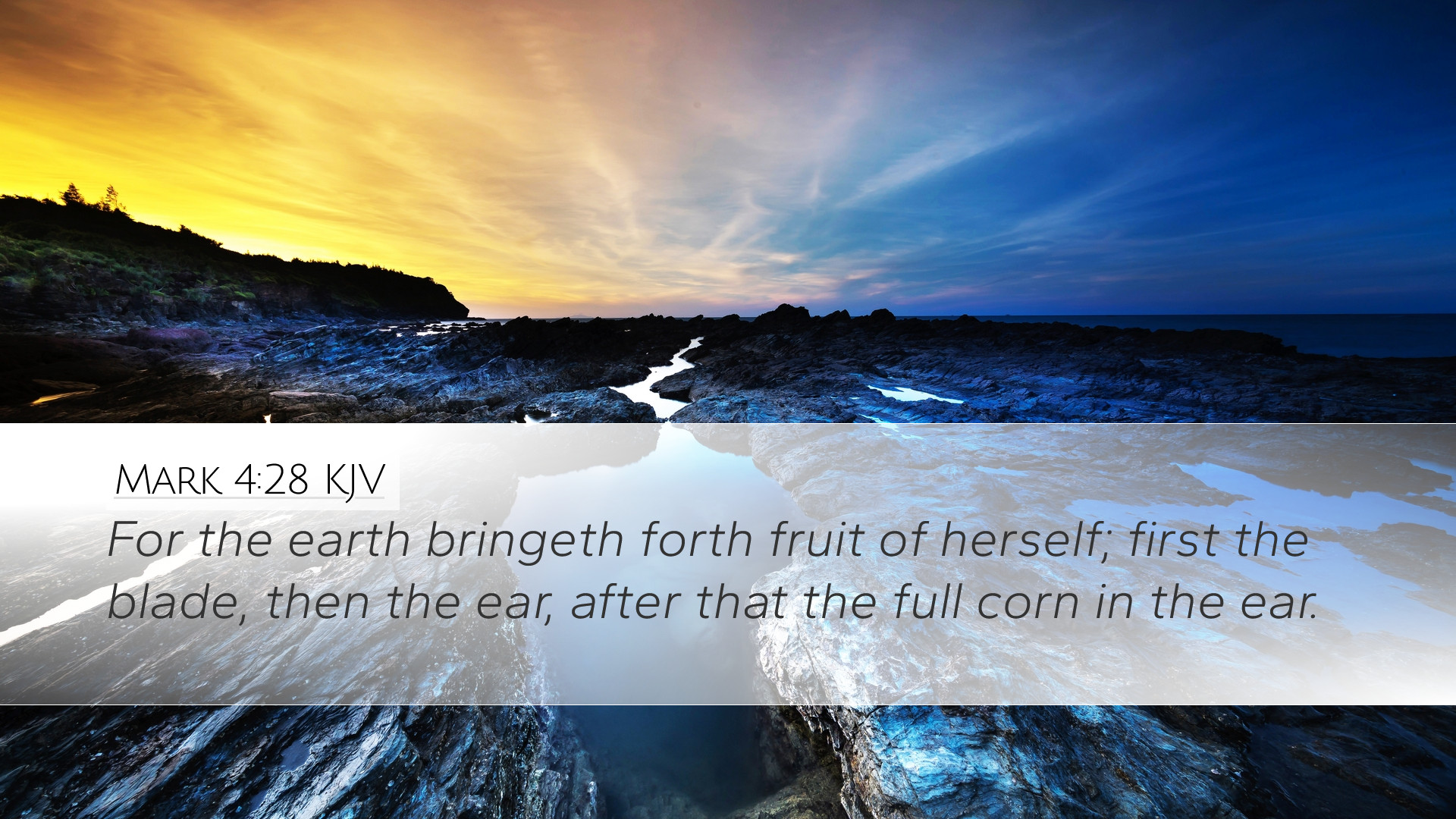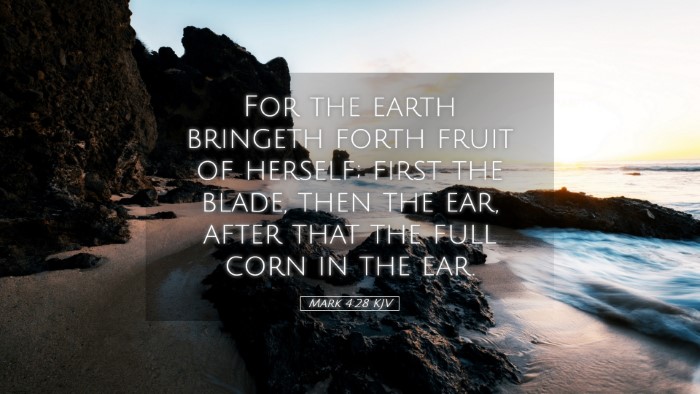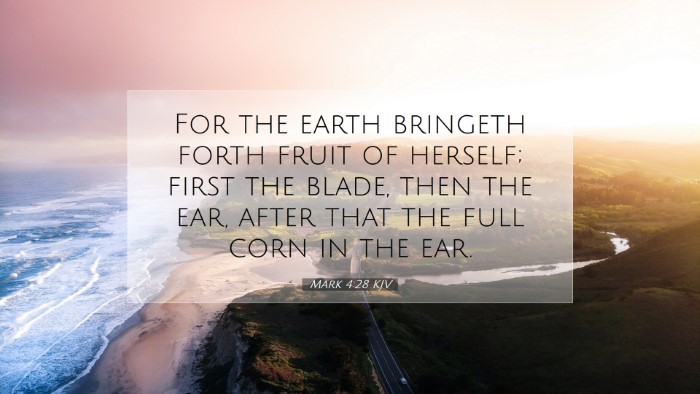Commentary on Mark 4:28
Verse: "For the earth bringeth forth fruit of herself; first the blade, then the ear, after that the full corn in the ear."
Introduction
This verse is part of the parable of the growing seed, emphasizing the natural processes of growth which can be reflective of the spiritual growth in the Kingdom of God. The commentators we will explore reveal profound insights into this verse which helps to understand its theological implications and practical applications.
Contextual Analysis
Before diving into the commentary, it is essential to consider the context of this verse. Mark 4 communicates themes surrounding the Kingdom of God and the progressive nature of spiritual growth. The parable in which this verse occurs speaks to the mystery of growth that occurs on its own, suggesting reliance on divine providence.
Commentary Insights
Matthew Henry’s Commentary
Matthew Henry notes the simple yet profound nature of the growth described in Mark 4:28, illustrating that spiritual growth is not necessarily accompanied by immediate visibility or understanding. He points out:
- Self-Active Growth: Just as the earth produces fruit of itself, so does the Gospel produce life in believers. The spiritual growth of a person is a natural outcome of divine influence within them.
- Phases of Growth: The progression from the blade to the ear and then to the full corn indicates that spiritual growth occurs in stages. This reminds believers that maturity in faith is a process, requiring patience and perseverance.
Henry further emphasizes the power of God’s Word, likening it to the seed which, though small and seemingly insignificant, holds great potential for growth within the believer's heart.
Albert Barnes’ Notes
Albert Barnes expands on the implications of growth depicted in the parable. He explains:
- Inherent Potential: The "earth" represents the receptive heart of a believer, which has the innate potential to yield fruit when the seed, representing God's Word, is sown. It is a powerful illustration of the faith and trust believers must have in God's timing.
- Organic Growth: The phrase “bringeth forth fruit of herself” suggests that spiritual maturation is organic rather than mechanical. The believer's role is to nurture the seed through faith, prayer, and the observance of spiritual disciplines.
- Assured Result: Just as a farmer anticipates a harvest, believers can be assured that faithful adherence to God's Word will naturally result in spiritual growth over time.
Adam Clarke’s Commentary
Adam Clarke provides additional insights, particularly regarding the agricultural metaphor. He elucidates:
- Divine Influence: Clarke suggests that the phrase "first the blade, then the ear" speaks to the gradual unfolding of God’s plan in the believer’s life. It highlights the necessity of God's involvement in every stage of spiritual development.
- Faith's Patience: The verse encourages believers to be patient. Spiritual maturity doesn’t occur overnight; it reflects a process akin to nature itself, wherein time is essential for growth.
- Anticipated Harvest: There is an ultimate goal, the "full corn in the ear," which symbolizes the readiness for harvest. This serves as a metaphor for the final fruition of our faith, culminating in eternal life and rewards that await the faithful.
Theological Implications
Mark 4:28 carries substantial theological implications concerning God’s sovereignty in spiritual growth. It acts as a reminder that while human effort in nurturing faith is necessary, it is God who initiates and ensures its fruition. The process of growth celebrates divine grace, embodying the mystery of faith that often transcends human understanding.
Practical Applications
For pastors, students, and theologians, understanding and applying the lessons from Mark 4:28 can lead to transformative practices:
- Patience in Ministry: Pastoral care and discipleship necessitate a patient perspective, trusting that God is at work in the hearts of those under their guidance.
- Nurturing Faith: Emphasizing discipleship as a journey allows believers to fully appreciate the different stages of growth in their spiritual lives.
- Encouragement in Trials: Recognizing that growth takes time can be encouraging for believers facing discouragement in their faith walk.
Conclusion
Mark 4:28, through the lenses of various public domain commentaries, illustrates profound truths about the nature of spiritual growth. It reminds the faithful that growth occurs not by human effort alone but through the quiet, powerful work of God’s Spirit within individual lives. This understanding is vital for effective ministry and personal faith development, affirming that God's timing and processes are perfect in bringing forth a fruitful harvest from each believer's life.


